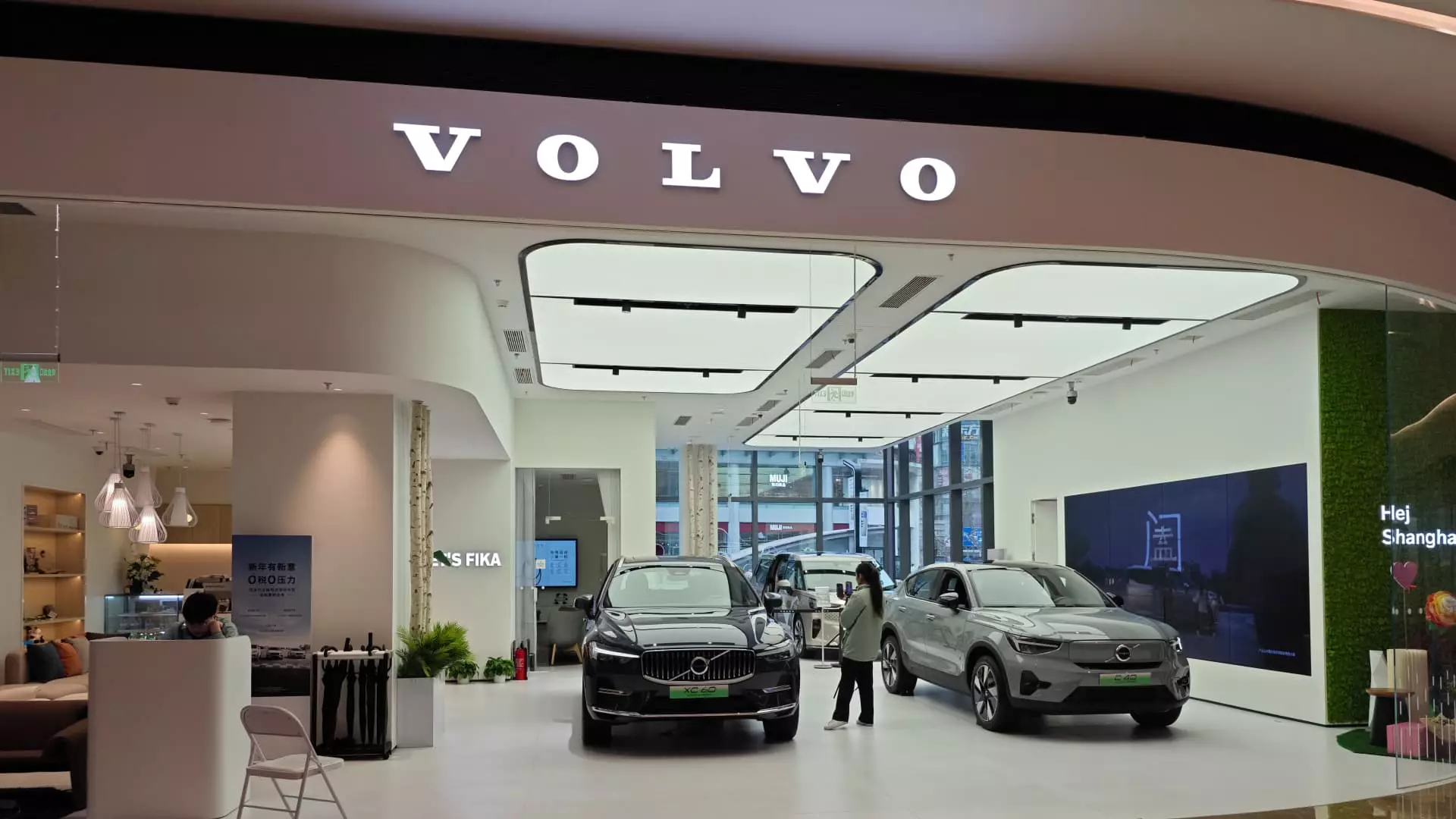Volvo Cars, the Swedish automaker majority-owned by China’s Geely Holding, recently announced a revision to its margin and revenue targets. The company has adjusted its 2026 EBIT margin goal to 7-8%, down from the previous target of “above 8%.” This decision was influenced by the increased complexity of global trade and tariffs, which have presented challenges to the automotive industry. Additionally, Volvo Cars has revised its revenue target and is now focused on outgrowing the premium car market until 2026, rather than aiming for a revenue range of between 500 billion and 600 billion Swedish kronor as previously stated.
The international trade disputes and tariffs have significantly impacted the operational strategies of automakers globally. Volvo Cars’ decision to scale back its margin and revenue targets reflects the uncertainties and complexities associated with navigating geopolitics between the European Union, China, and the U.S. The ongoing trade tensions have created challenges for companies seeking to maintain a competitive edge in a market that is undergoing a transition towards electric vehicles.
During its Capital Markets Day in Gothenburg, Sweden, Volvo Cars outlined its product plans for the future, with a strong emphasis on transitioning to electric and plug-in hybrid models. The company currently has five fully-electric models available and is developing five more. However, Volvo Cars announced that it would no longer aim for 100% electric vehicle sales by 2030. Instead, the company is now targeting a range of 90-100%, allowing for the sale of mild hybrid models alongside electric vehicles. This strategic shift is driven by factors such as consumer demand, the pace of charging infrastructure development, changes in government incentives, and uncertainties surrounding tariffs on EVs.
Volvo Cars is not the only automaker facing challenges in the transition to electric vehicles. Industry-wide, there have been reports of underwhelming demand for electric cars, as well as concerns expressed by consumers regarding the availability of charging infrastructure and range limitations. These factors have contributed to the complexities of achieving ambitious targets for electric vehicle sales.
In response to the changing market dynamics, Volvo Cars has extended its partnership with U.S. chip giant Nvidia to develop advanced features for driving assistance and autonomous driving. The company is also streamlining its manufacturing processes by implementing a “single technology stack” to reduce the costs associated with EV production. These strategic moves are aimed at enhancing Volvo Cars’ technological capabilities and driving innovation in the electric vehicle sector.
Recent sales figures released by Volvo Cars indicate a 3% year-on-year increase in global sales for August, fueled by significant growth in Europe but offset by a decline in sales in China. Fully-electric and plug-in hybrid vehicles accounted for 47% of total vehicle sales in August 2024, underscoring the company’s commitment to electrification. Despite market challenges, Volvo Cars reported a record quarterly operating profit in July, indicating resilience and adaptability in navigating the evolving automotive landscape.

